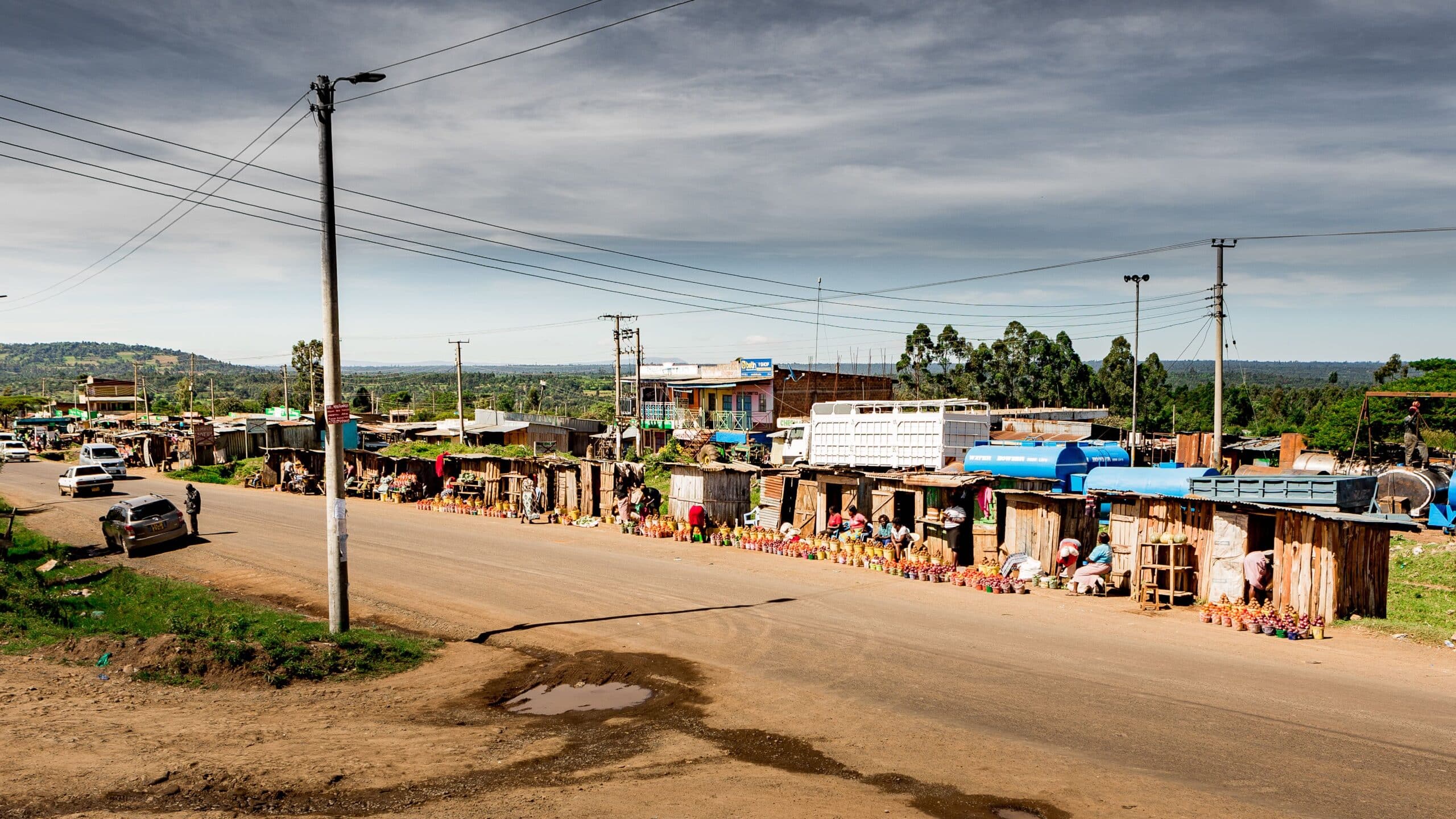In September 2017 we set out for Kinshasa, the capital city of the Democratic Republic of Congo, to conduct FSD Africa’s first scoping mission in the country. Having had a new fragile states strategy approved by the board earlier in the year, we were excited to get to know the country finally, a little bit of its people and explore the potential areas where FSD Africa could bring in its combination of resources, expertise and research to address financial market failures and deliver a lasting impact.
We spent almost two weeks meeting various stakeholders in the financial sector, understanding first-hand the constraints faced by different actors and charting paths of engagement with various institutions to improve the Congolese financial sector.
A few things stood out for me as we went about the scoping mission:
Collaboration with other development partners and private sector actors is critical in the quest to deliver sustainable financial sector development in the region.
FSD Africa is sed in Nairobi and therefore operating on a fly-in, fly-out model would be quite cumbersome and expensive. Striking the right partnerships with other development partners operating in DRC helps FSDA have critical boots on the ground, with the right expertise and local knowledge to inform its intended portfolio of work in DRC. During our scoping mission, we had the chance to meet and be part of the GPTF (Groupe des Partenaires Techniques et Financiers), a group of technical and financial partners who are all working to enhance financial sector development in DRC. Increasing donor collaboration and harmonization goes a long way in reducing duplication of efforts and wastage of valuable resources.
We will be partnering on various projects with ELAN RDC, a market development programme funded by UKAid and working to promote sustainable and inclusive economic development by empowering businesses and entrepreneurs in the Democratic Republic of the Congo.
The IDP and refugee crisis in DRC is worse than ever.
Last year, UNHCR received less than US$1 per person in donor contributions for its programmes for the internally displaced in the DRC. For 2018, UNHCR is appealing for US$368.7 million for the Congolese situation. A total of US$80 million is required to support the internally displaced populations inside the DRC.[1] This goes to show that a more sustainable approach for the economic livelihood of refugees is needed and refugee agencies such as UNHCR are now shifting emphasis from humanitarian aid to socio-economic inclusion and support for market-based livelihood strategies. There needs to be a paradigm shift towards private sector-led delivery of solutions in which financial sector providers have a big role to play.
Building on the success of its approach in Rwanda, FSD Africa will undertake a joint piece of research with ELAN RDC to assess the size and the scope of the demands of goods and services from IDPs and refugees in the DRC. The research will also provide evidence on the size and the dynamics of the demand and supply of financial and non-financial services amongst refugees and IDPs. We hope that the research will also shed some light on the constraints faced by private sector stakeholders that prevent them from serving the target population of IDPs and refugees in DRC and later communicate evidence fom the study to help change the perception of some actors that IDPs and refugees do not represent a viable client segment.
There exists a huge need for the development of capital markets in DRC.
Capital markets play a critical role in achieving developmental goals of ending extreme poverty, strengthening resilience as well as tackling global challenges such as climate change and urbanization. Capital markets facilitate the long-term financing of essential sectors such as infrastructure (ports, roads, power and water), and housing. They provide capital to growing businesses that generate income and jobs to households. They also widen the range of opportunities available to domestic investors, such as pension funds and insurance companies. Furthermore, domestic bond markets help reduce foreign currency risk which arises when local investments are financed with foreign currency denominated loans.
The Democratic Republic of Congo is like many countries in Sub-Saharan Africa whose capital marets are at different stages of development with varying activity, liquidity, regulatory frameworks, market infrastructure and market structures. Most markets lack depth, instruments and sophistication. Capital markets development seeks practical approaches that foster sustainability and FSD Africa is naturally poised to deploy its tried and tested approach from markets like Kenya and Nigeria to DRC and bring its experience from projects with a footprint in 15 countries (including the regional programmes in East Africa and West Africa).
Infrastructure remains challenging and development finance can play a huge role in addressing these challenges.
Energy, transport, water and communications infrastructure are all critical to private sector investment, competitiveness and job creation: yet across Africa and South Asia, 1.2 billion people lack access to electricity,[2] 1.3 billion lack access to an all-weather road, and 1.6 billion people lack improved sanitation.
The DRC remains one of the most infrastructurally challenged countries in the world. Road and rail transport is severely underdeveloped with only 2,250km of Congo’s roads being paved.
The country’s vast geography, low population density, extensive forests, and criss-crossing rivers further complicate the development of infrastructure networks. Public-Private Partnerships (PPPs) are a very useful means of harnessing private sector participation in the provision of high-priority infrastructure. Among the many benefits that PPPs can bring, PPPs can build local capacity and expertise (resulting in more cost efficiencies), encourage increased competition, and create opportunities for broader economic growth.[3]
Projects geared towards addressing infrastructure challenges have the potential to generate economic opportunity and employment through the creation of both direct and indirect jobs, and increase access to basic goods and services, especially in remote areas or fragile states.
Funded by CDC Group plc, the UK’s development finance institution, Virunga Energy, is a hydroelectric power company in the Eastern DRC, which provides electricity to a conflict-prone region where only three per cent of the population has access. The Virunga Foundation aims to provide clean electricity to communities living in and around Virunga National Park in North Kivu, Eastern Congo. CDC’s investment will support the development of the existing electricity grid and the construction of two new plants resulting in almost 50MW of total generation.
The investment, made through the Department for International Development’s (DfID) Impact Acceleration Facility, will establish power infrastructure in a region of four million people that faces a chronic lack of electricity supply. In many target areas of the Virunga grid there is currently no access to electricity; in the wider Kivu area there is only 3% electrification and around 15% in the DRC in general.[4]
Political stability remains a huge influencer but it should not deter us from doing work in DRC.
We cannot gloss over the conflict and political uncertainty in DRC. However, we also cannot close our eyes to the fact that despite the conflict and tension, DRC remains a country with enormous potential for growth. There is a lot of work to be done in a country where less than 11 percent of adults in the DRC have an account with a formal financial institution, and only 2 percent have access to formal and regulated credit services.[5] This level of financial exclusion can be a huge impediment to individual and overall economic development. FSD Africa remains committed to its mandate to create jobs and provide services for more people, particularly from economically excluded groups such as women, the poor, and those who live in fragile and conflict-affected states, and will endeavor to make inroads in the development of the financial sector in DRC.
[1] http://www.unhcr.org/news/briefing/2018/2/5a8be92c4/unhcr-alarmed-reported-atrocities-dr-congos-tanganyika-province.html
[2] World Energy Outlook 2015.
[3] http://ppp.worldbank.org/public-private-partnership/small-and-medium-enterprises-and-ppps
[4] http://www.cdcgroup.com/Media/News/News-CDC-investment-brings-electricity-to-Eastern-Congo/
[5] http://www.worldbank.org/en/programs/globalfindex



